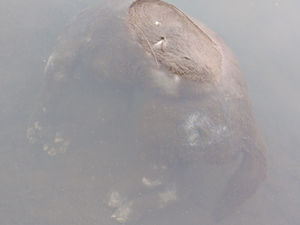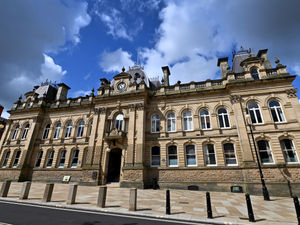Wolverhampton hosts service on Holocaust Memorial Day marking Auschwitz anniversary
"I came out of respect for the memory of my grandparents who died in Auschwitz."
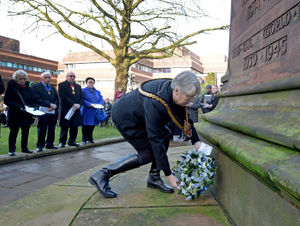
These were the words of a Wolverhampton woman at a moving service to mark Holocaust Memorial Day.
About 100 residents and civic dignitaries attended the gathering at the Cenotaph in St Peter's Square organised by Interfaith Wolverhampton to remember the victims of genocide in conflicts.
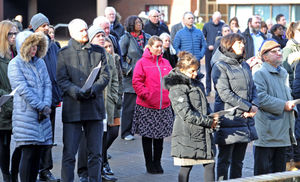
The event coincided with commemorations to mark the 75th anniversary of the liberation of the Auschwitz-Birkenau concentration camp, in Poland, by the Allies on January 27, 1945.
Led by the Bishop of Wolverhampton the Rt Rev Clive Gregory the service was based on the theme 'Standing Together' and featured prayers and poems read aloud by representatives from representatives from various faiths including Christian, Muslim and Jewish groups.
Following the service Rev Chris Collins, secretary of Interfaith Wolverhampton, gave civic guests pieces of a special flame artwork based on the design of the Holocaust Memorial trust logo.
The guests also signed a pledge of commitment to act against such atrocities.
GALLERY: City comes together to remember
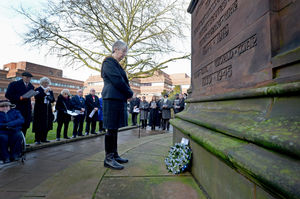
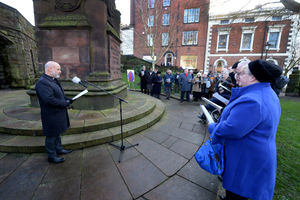
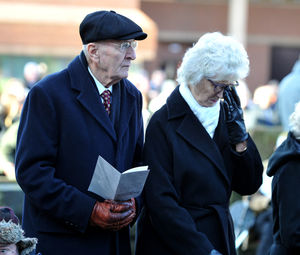
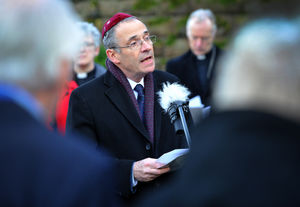
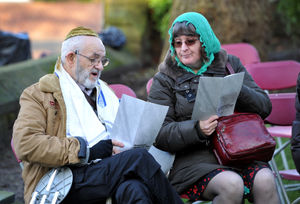

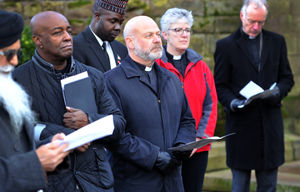
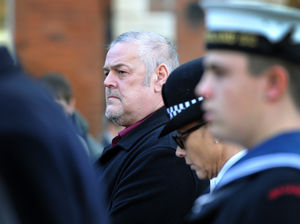
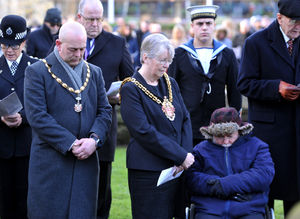
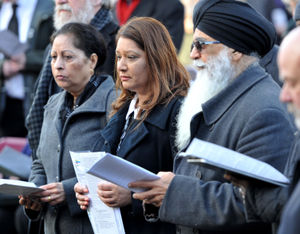
Mr Collins said: "One of the things we strive to do is to involve all faiths across the city and I think we have managed to achieve that today. I think it's been a wonderful turn out."
Sharon Kronheim-George, aged 65, of Wolverhampton, whose grandparents Hugo and Katherine Kronheim died in Auschwitz said: "I was delighted to see on many people from different denominations from the Wolverhampton community.
"I thought that the message was clear and and the service was meaningful.
"I came out of respect for the memory of my father and for my grandparents who died in Auschwitz. They were taken there, but we don't know when they died."
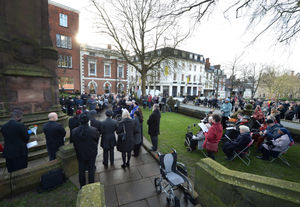
Holocaust Memorial Day developed into a national observance for the victims across the experience of genocide including the Germany Nazi persecution; massacres in Srebrenica, in 1995; Cambodia in the mid 1970s; Rwanda in 1994, Bosnia; and Darfur in Sudan in 2003.

